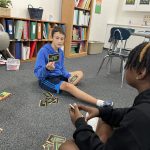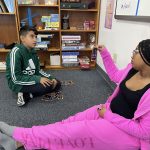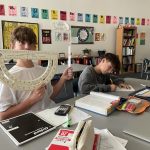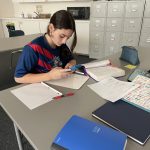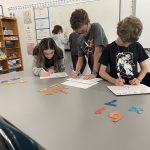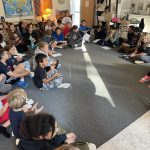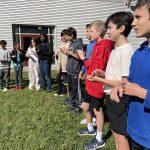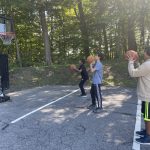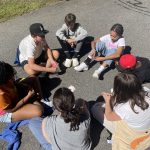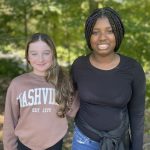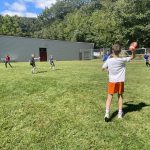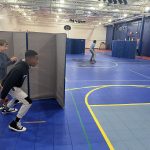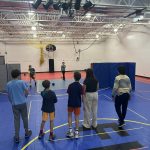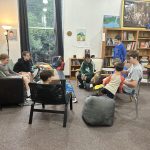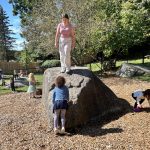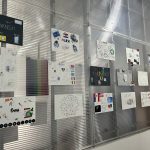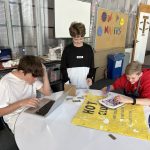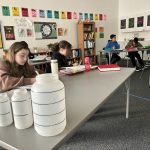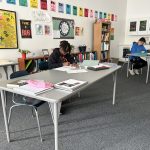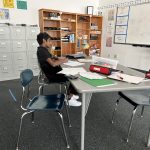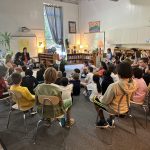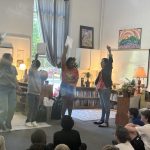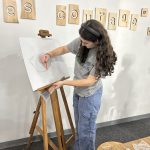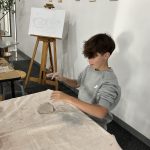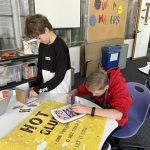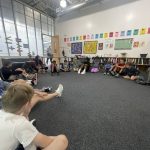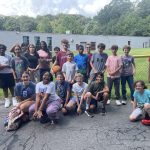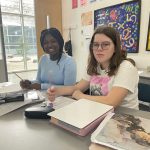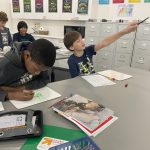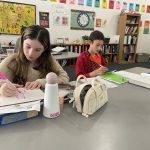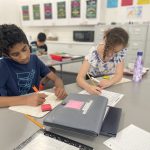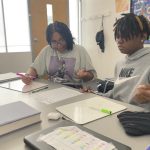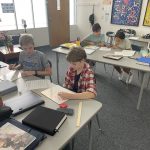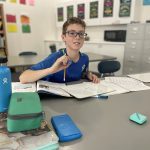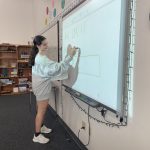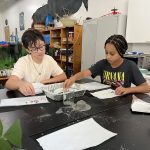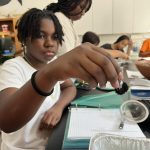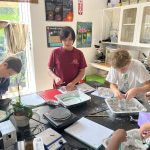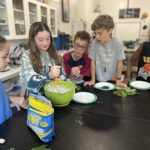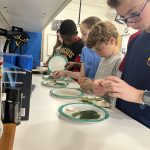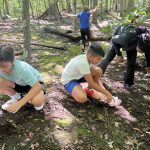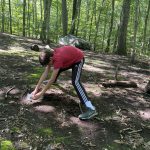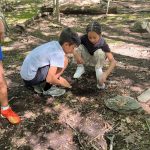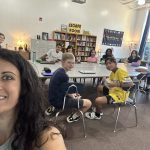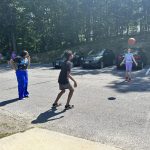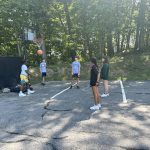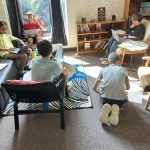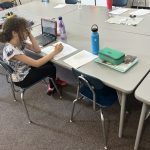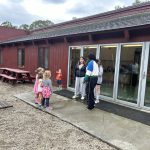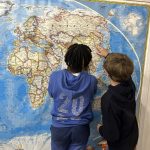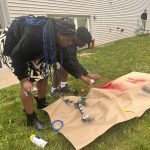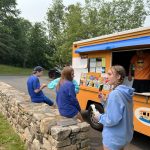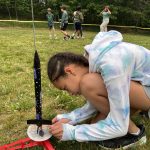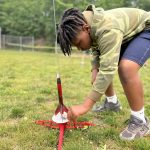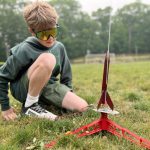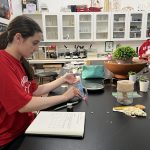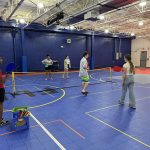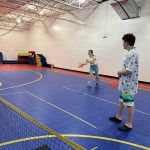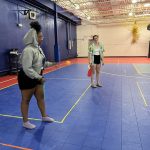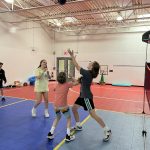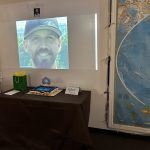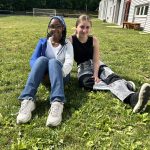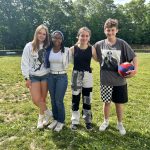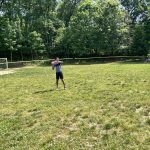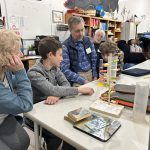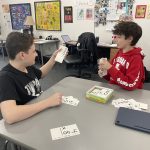Happy Friday, FWM Middle School community! Another great week is in the books. Students are moving right along with their independent study projects, joining their younger peers during Social Impact, and plugging away on their Leadership initiatives. They had a great experience hearing speaker Kelsey Tainsh and participating in International Peace Day with our school community.
**A reminder that on Thursday, 9/28, we will travel to the Adventure Park at the Discovery Museum in Bridgeport from 10 to 2 for a day of high ropes and fun! Closed-toed sneakers and a bagged lunch from home will be needed.
Here’s what went on in some of their other classes this week:
Math
6th-year Earth Science students worked on creating their resin molds this week. Students chose an item they wished to preserve in their resin. Some students chose leaves of native plants, while others chose a mosquito (very Jurassic Park). The intention of this activity was for students to apply their working knowledge of the different elements that affect preservation potential.
Humanities
The 6th-grade Humanities class had a busy week! They have been reading Sharon Draper’s Out of My Mind and getting into the book discussion flow. They have a lot of insight to offer, and the conversations surrounding the book have been great. They have been finding ways to relate to the novel, and the plot certainly evokes some strong emotions from the class. To hear the story of this week’s guest speaker, Kelsey Tainsh, offered another layer of understanding for this class. Like Melody, Kelsey’s physical challenges have caused people to have major misconceptions about what she can and cannot do. As the class learns about empathy, these stories give students perspective and another sense of understanding for the diverse people they have and will encounter. Additionally, this class completed revisions of their “Where I’m From” poems, learned and used editing marks, and began their descriptive writing unit.
7th-grade Humanities classes had students wrapping up summer work and continuing their study of China. First, students delivered presentations about their summer independent choice novels. A variety of genres and topics were covered in these books. It is always exciting for Mrs. Lamb to note what students recommend to add some new titles to the Humanities library! Next, the class continued reading Lensey Namioka’s Ties That Bind, Ties That Break. Students are following the story of Ailin, who is growing up in a changing culture with a family that is split on whether to maintain tradition or change with the times. Class book discussions have been gripping, with almost everyone getting involved and providing perspective for each chapter. Their reactions and insight have Mrs. Lamb excited for the rest of the year’s novels and topics! Finally, they will continue visiting China’s provinces virtually and wrap this up next week.
8th Humanities classes took on a good amount of reading this week. First, they continue to read their class fictional novel, The Outsiders, by S.E. Hinton. They have reached the turning point in the story when a lot of action takes place. Book discussions surround their annotations on the chapters, and the students are providing insightful responses and reactions to the events in the plot. Additionally, they read the first chapter of A Different Mirror for Young People: A History of Multicultural America by Ronald Takaki. This chapter discussed the notion of the Master Narrative and what qualities determine if a person is American, addressing common assumptions as well. It tied in well with this week’s poem by Nellie Wong, “Where is My Country?”
